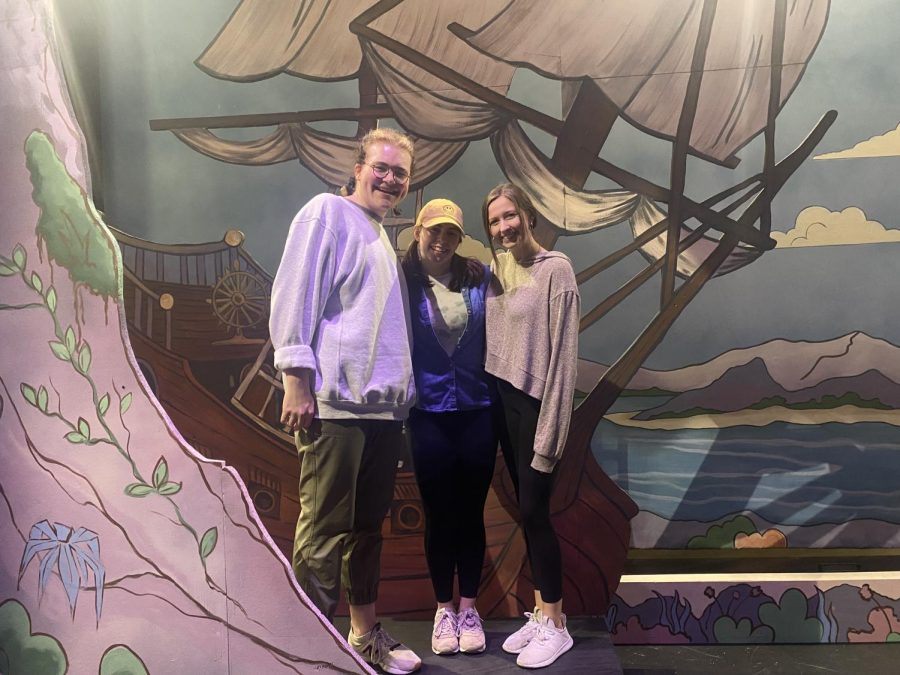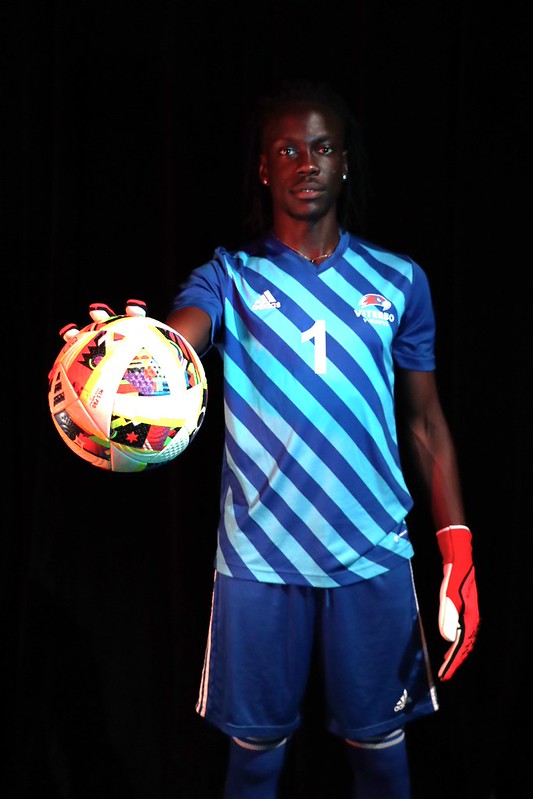“Pirates of Penzance” in full swing
Isaac Knudsen on left, McKenzie Russ in the middle and Beth Anderson on the right, standing on set for “Pirates of Penzance”
March 23, 2023
“Pirates of Penzance,” a comedic operetta directed by Viterbo’s Theatre & Music Theatre faculty member, Teddy Eck, recently had their performances on May 3-5. With only a month and a half of vocal and choreography rehearsals, the students of Viterbo’s Conservatory of the Performing Arts presented this show at the Weber Center in downtown La Crosse. The students who were swings, or those responsible for learning multiple roles in the show, had much to share about their own experiences with being in this production.
Isaac Knudsen, a first-year Music Theatre major with a minor in Dance, swung for six bass and tenor ensemble roles. This is their first time performing in this role in a show before. “A swing,” as they explain, “is somebody who takes on multiple roles at once. So normally a swing doesn’t perform unless one of their tracks is out. It can range from [covering] 2-14 [tracks]. They’re super important because if somebody goes out you need someone to be able to go on and fill in for them.” Kundsen explains that these individuals need “to be able to cover all these different roles and know what everyone’s doing.”
McKenzie Russ, a first-year Music Theatre major with minors in Dance and Arts Administration, swung for three maiden and police roles, as well as being the understudy for Kate. On being a swing, Russ says, “It’s been really fun to learn another aspect of theatre.” In response to how she has grown as a performer during this process, Russ says that she gained “more confidence in what I’m doing. I always know it better than I think I will, so my confidence in what I know when going up on stage and doing something has gotten a lot better – I’m not as nervous.”
Beth Anderson, sophomore Music Theatre major with minors in Dance and Arts Administration, swung for four maiden tracks. This is her first time swinging for a show, but before this she understudied for two roles in “Measure for Measure” last fall. When asked what she enjoyed most about the swing process, she said, “I think just knowing that I’m there to support the cast if something were to happen. Even though I may not get to perform, I am there for them in the event of something going wrong and I [can] support them in that way to help them feel [safer] in the show.”
All three of these swings found the formations and blocking, where the actors would be and move on stage, challenging parts of their process. For example, Anderson says, “it surprised me that it was the toughest part – keeping track of where everybody is all the time, [specifically for] formations.” However, there was a method behind this madness. As Russ states, “I would learn it in rehearsal, look back on the videos [and then] write separate notes for each separate track. I have a folder for each of my tracks.” These folders helped Russ to stay organized.
Swings are highly important to the theatre industry. Without them, there would be no one who could go on stage in case of an event or an emergency happening to one of the ensemble members. Like the rest of the cast and crew, Knudsen, Russ and Anderson worked hard on “Pirates of Penzance” and they learned a lot from their experiences as swings.
If you didn’t get the chance to see this operetta, the Conservatory’s next show is “Hello Girls” being performed on March 31-April 2.



